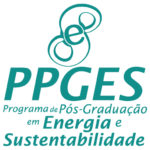Lines of Research
PPGES is organized into two main areas of concentration, Energy Systems and Energy Planning, Environment and Society, and three lines of research:
Energy Conversion, Transmission and Utilization
Research in Energy Conversion, Transmission and Utilization focuses on the transformation of thermal, electrical and mechanical energy, such as in gas, steam, solar, wind, and fuel cell systems, or in contexts involving electric machinery and similar technologies. It also includes studies on biomass properties, biotechnological conversion of biomass into fuels, biofuel production, thermochemical conversion of solids, and potential applications of products, by-products and residues from these conversion processes.
Faculty involved:
- Carla de Abreu D’Aquino
- Elaine Virmond
- Elise Sommer Watzko
- Giuliano Arns Rampinelli
- Fernando Henrique Milanese
- Leonardo Elizeire Bremermann
- Luciano Lopes Pfitscher
- Regina Vasconcellos Antonio
- Reginaldo Geremias
- Thiago Dutra
Computer and Control Systems for Energy
Research in Computer and Control Systems for Energy focuses on computer systems and control of processes applied to electricity generation, transmission and distribution. The main projects developed are related to: smart grids, distributed generation, automation of energy systems, and modeling and control of linear and nonlinear systems.
Faculty involved:
- Analucia Schiaffino Morales
- Cesar Cataldo Scharlau
- Fabrício de Oliveira Ourique
- Giuliano Arns Rampinelli
- Luciano Lopes Pfitscher
- Marcelo Daniel Berejuck
- Ricardo Alexandre Reinaldo de Moraes
Energy Resources, Environment and Functional Materials
This line of research focuses on renewable energy sources and the assessment of environmental impacts caused by the extraction, generation, distribution and use of energy resources. It also investigates techniques for preventing, mitigating and remediating these impacts. Additionally, the studies address institutional aspects and their interrelations with public policies and legislation aimed at energy management, with attention to internationally relevant topics such as energy efficiency and climate protection. A key focus of this line is the development of new functional materials based on the principles of Green Chemistry, which are applicable to a variety of technologies, particularly in the areas of energy, biomolecules, and waste and effluent treatment.
Faculty involved:
- Carla De Abreu D’Aquino
- Cláudia Weber Corseuil
- Claus Tröger Pich
- Elaine Virmond
- Elise Sommer Watzko
- Kátia C. Rodrigues Madruga
- Luiz Fernando Belchior Ribeiro
- Maria Angeles Lobo Recio
- Regina Vasconcellos Antonio
- Reginaldo Geremias
- Tiago Elias Allievi Frizon













